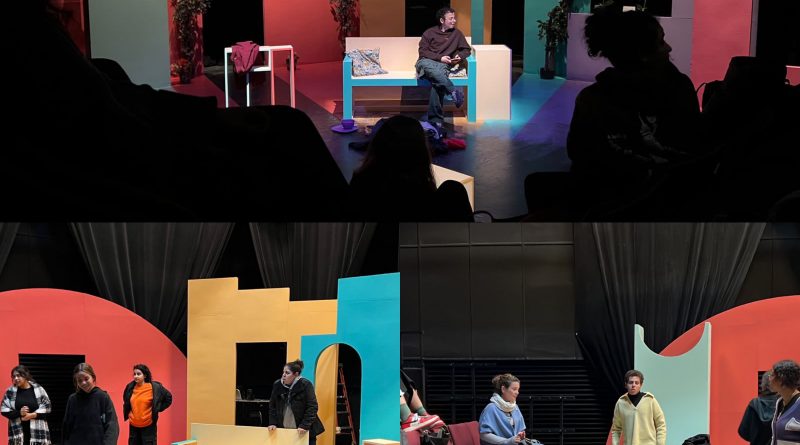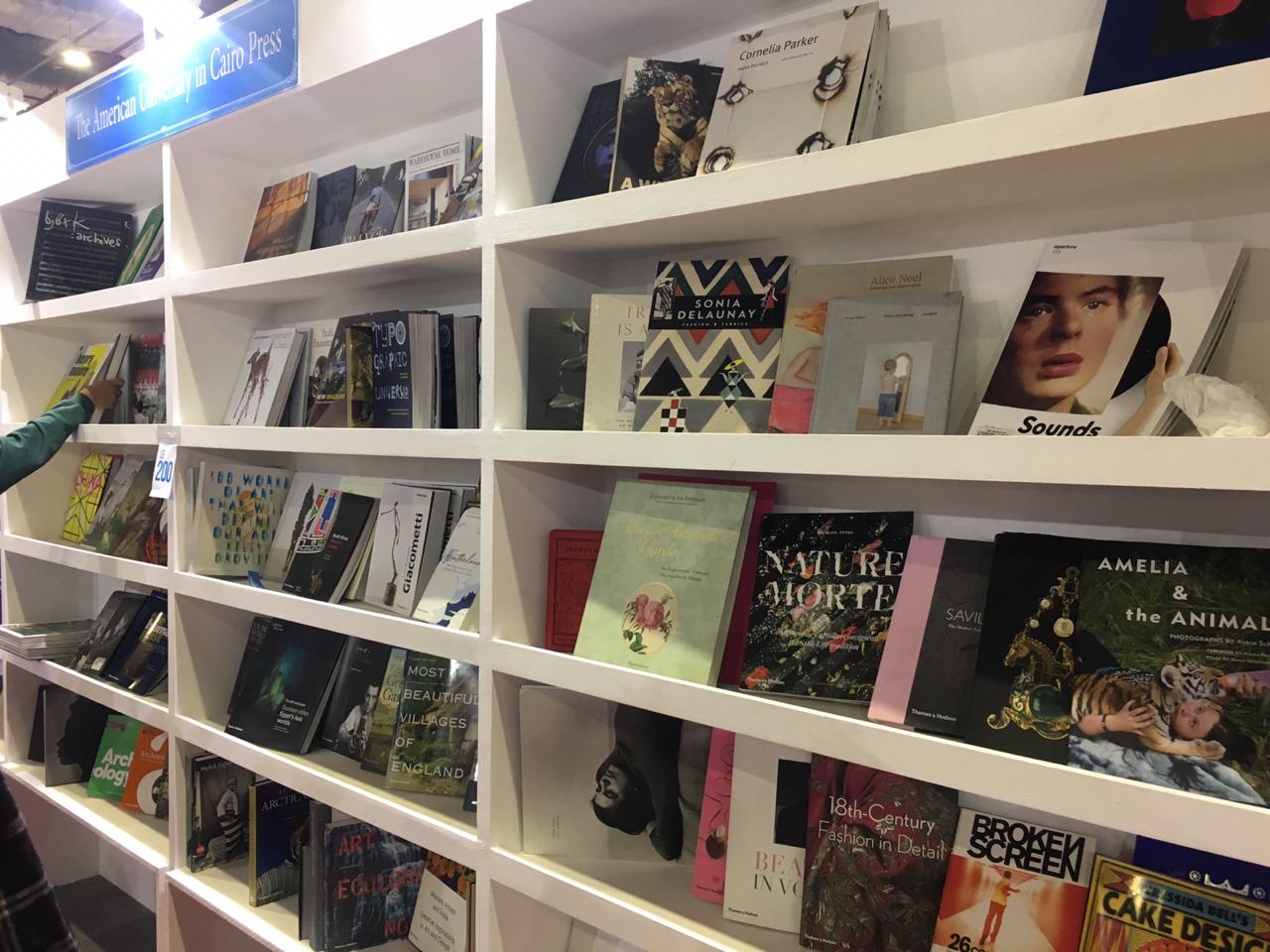Theater Department Tackles Mental Health on Stage
By: Malak Moussa @MalakMoussa223
People attending stage performances rarely know the amount of work, hours, and sheer grit that goes into the production of a performance.
Preparations for the theater department production of “Piece of Mind”, a performance consisting of five different short plays written by members of the AUC community, which opens today, began in earnest as early as September 2022.
Each play, which uses comedy and drama to tackle a mental health issue, runs from February 21 to 28 at the Gerhart theater AUC, New Cairo.
There are no breaks between the five plays; each runs ten minutes long with artistic choreography serving as a change of scenery.
“We wanted a cohesive show so we had to use the same set and that is where the idea of the transitions came from. Thus, we made the transitions a part of the performance and it became this mix of drama and super artistic ” said Siobhan Buckman, one of the directors of the play.
For every one of these productions, there’s a huge team working behind the scenes. The artistic producer, Jillian Campana; artistic director, Noah Abdel Razek; technical director, Muhammad Talaat; lead designer, Meredith Boring; light designer, Sherif El Daly; assistant designer, Mariam Ayoub; stage manager, Nadine Abaza; assistant stage manager, Malak Moussa; props master, Seif Makhlouf; production manager, Mai Rashdan; promotion and public relations Amena El Defrway; senior scenery supervisor, Sameh Helmy; scenic technician, Ayman Adel; sound and light technician, Amr Taha; and facility manager, Salah Morsi.
“The play has eight actors and 13 roles so finding the time for all scenes to rehearse was very difficult,” says Abaza.
Mahy Abouzied, one of the directors of the play, agrees. She told The Caravan that mounting the production is took much work and “dedication”.
The actors include Ahmed Mohamed, Hana Daoud, Hussein Shabana, Kawther Lokma, Malak Amr, Rola Khalil, Nada El Alaily, and Noha Hisham.
As for the costumes, every performer in the play wears what is appropriate for their part in the production so that they may give the audience a distinct impression of their character.
Hide, the first play, written by Omar Omar and directed by Siobhan Buckman addresses body insecurities and therapy.
“The first play to me is about not feeling comfortable in your own body and I believe that most people experience that feeling whether it’s regarding their weight, height, skin, or hair …that is why I connected with it and believe a lot of people will too,” said Hide’s actor Hussein Shabana.
In Chaos (dawsha in Arabic), the second play, author Zeina Shalaby and director Nour Haitham. Explore attention deficit hyperactivity disorder, (ADHD) and its challenges.
Flowers, the third play written by Nour Koptan and directed by Mahy Abozaid, and also starring Shabana, examines grief and how it manifests itself in daily lives of the bereaved.
“It is special as it normalizes how people cope with grief in a deep dialogue that explains the logic behind each viewpoint without favoring one over the others and it’s my first time acting in Arabic which is in my fortune because I get to bring such a beautiful script to life,” Shabana said about the play.
Professor and Associate Dean for Undergraduate Studies Jillian Campana wrote Alive, the fourth play. Directed by Yousef Ghannam and Yousif Abozagay, the 10-minute play discusses the impact of social media on individuals, the fear of missing out, and smartphone addiction.
The fifth and final play is “Lessa,” written by Youssef Omran and directed by Amena Ebeid. The drama explores the causes and effects of depression and will enable people to connect and feel like they are not alone, Ebeid says.
In addition to tackling issues of mental health, Peace of Mind also promotes environmental awareness and eco-friendly practice – only four pieces of furniture will be used on stage.
“The set is really bright and lively to contrast the heaviness of the subject and to bring light to the audience. The colors were also chosen to represent the idea of how mental health issues are on a spectrum so everyone struggles with their mental health to different degrees,” said Noah Adel Razek, the artistic director.




